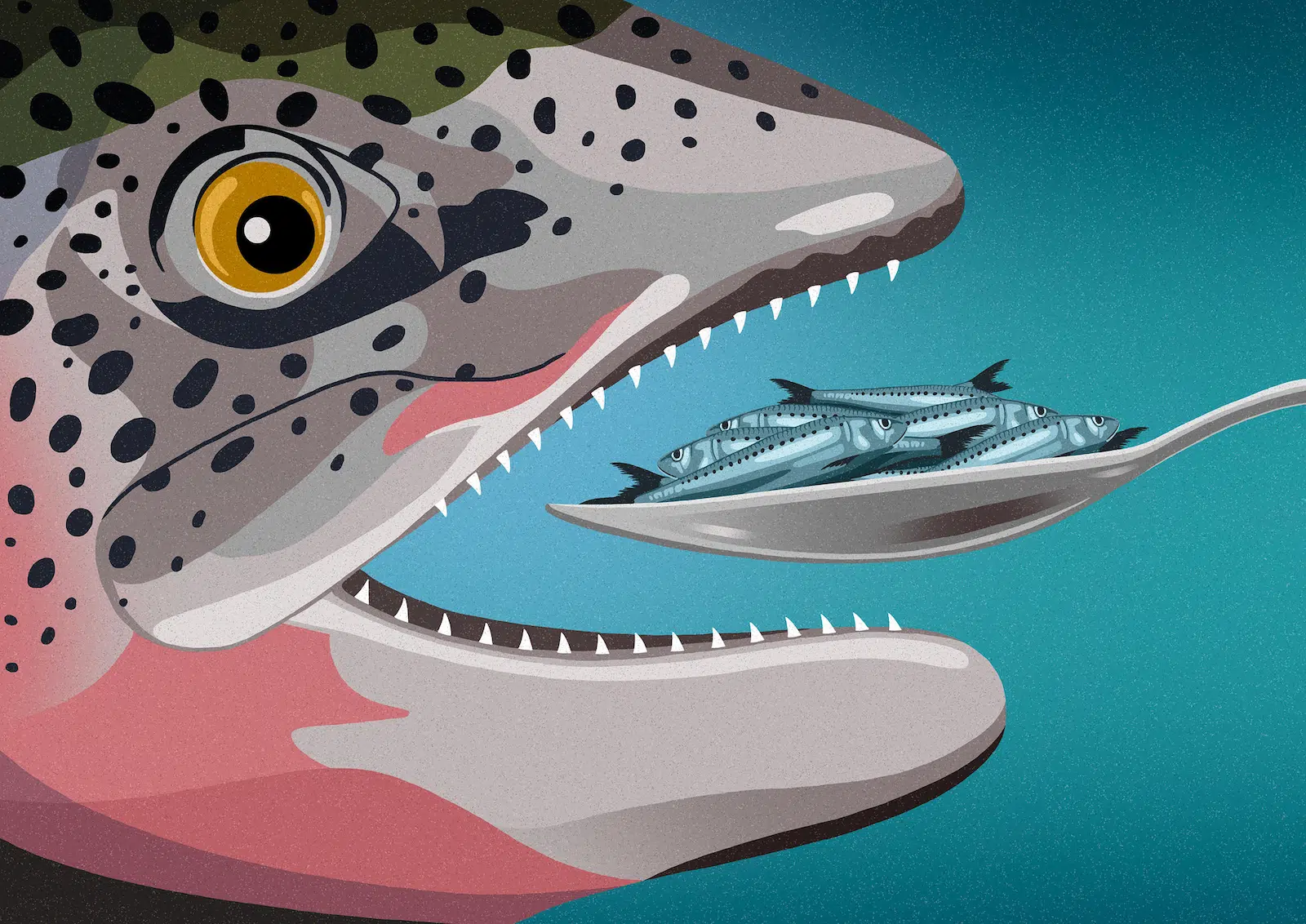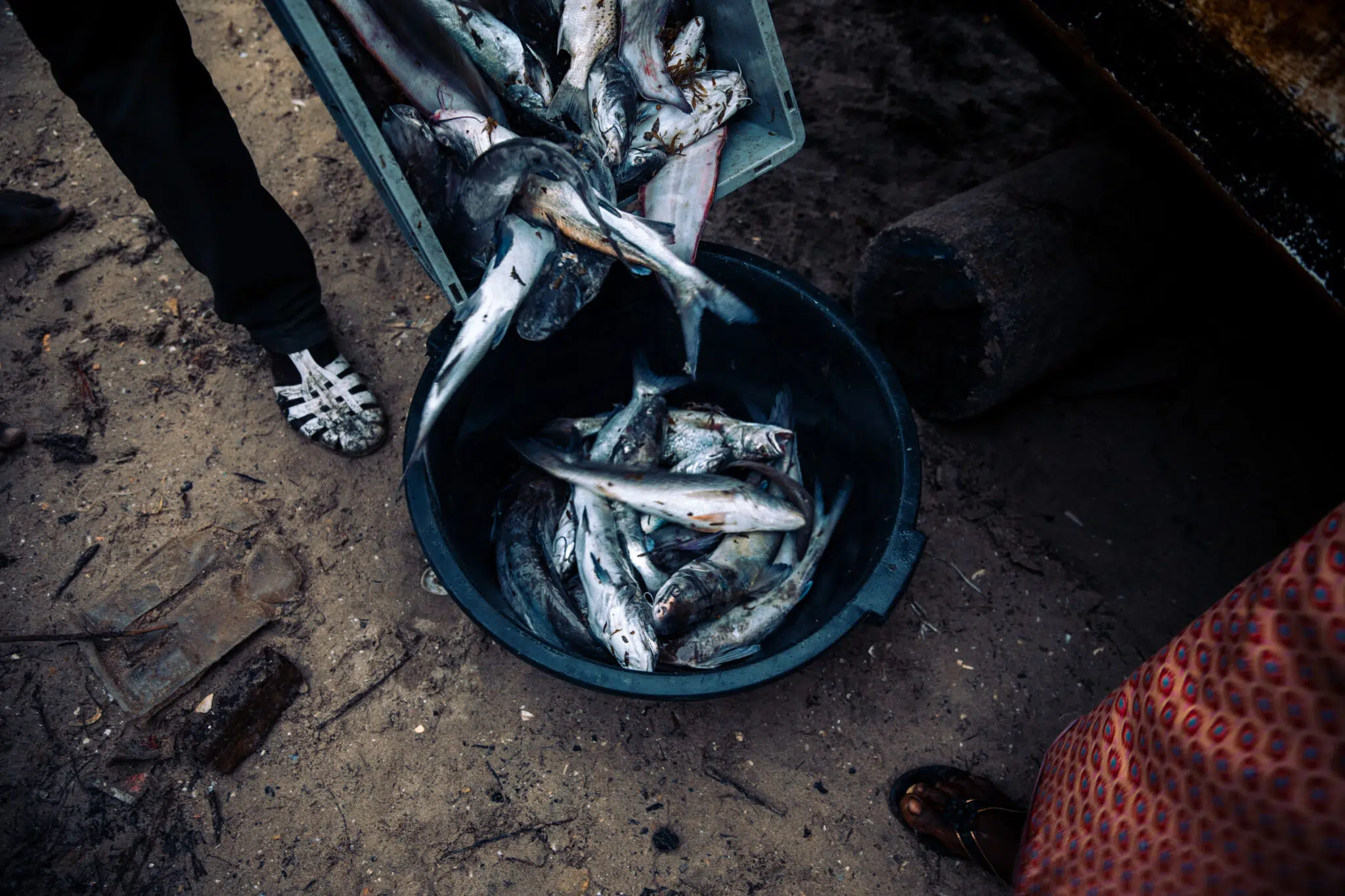
Message From the Editor
This week we launched our new Industrial Aquaculture Project in honor of World Oceans Day. At first glance, fish might seem like a climate-friendly alternative to meat for a world that needs to shift away from carbon-intensive cattle. At least the seafood farming (or ‘aquaculture’) industry would have you see it that way.
But there’s a hitch with this ‘sustainable protein’ spin. Like other intensive farming sectors, aquaculture has been dogged by controversy, and accused of varied ecological and social harms including animal welfare concerns, pollution and highly complex, extractive supply chains, which source the feed that farmed fish rely on.
And that’s the part that DeSmog is most keen to dig into: the feed.
Our first article by Brigitte Wear analyzes a report from Amnesty International which concludes that the fishmeal trade is undermining human rights and putting jobs at risk in The Gambia. We’ll be unpacking these topics over the next several months and are excited to bring our investigative track record to bear on holding this powerful industry to account.
Another of our articles this week was featured in the Guardian. Investigative journalist Joey Grostern reported on UK fossil fuel imports from authoritarian petrostates surging to £19.3 billion this year, following Russia’s invasion of Ukraine.
Government efforts to end the purchase of oil and gas from Russia have seemingly resulted in an upsurge in imports from other authoritarian regimes, including Algeria, Bahrain, Kuwait, Libya, Qatar, Saudi Arabia, and the United Arab Emirates.
“Fossil fuels are the currency of dictators and warmongers everywhere,” said Dominic Kavakeb of Global Witness. “It’s time to build an energy system that benefits people and the planet, rather than polluters, petrostates and despots.”
Have a story tip or feedback? Get in touch: [email protected]. Want to know what our UK team is up to? Sign up for our UK newsletter.
Thanks,
Brendan DeMelle
Executive Director
P.S. Investigative journalism like this is made possible by readers like you. Can you donate $10 or $20 right now to support more of this essential work?
Image credit: Peter Reynolds
How Fishmeal Factories Put Food Out of Reach for Communities in The Gambia
— By Brigitte Wear (6 min. read) —
The fishmeal trade is undermining human rights and putting jobs at risk in The Gambia, a new report has found.
Research by Amnesty International has uncovered a range of social and environmental problems caused by the country’s three fish processing factories, which are strung out along the small West African country’s 30 kilometre coastline.
DeSmog Launches Industrial Aquaculture Project
— By Hazel Healy (2 min. read) —
At first glance, fish might seem like a climate-friendly alternative to meat for a world that needs to shift away from carbon-intensive cattle. At least the seafood farming (or ‘aquaculture’) industry would have you see it that way.
Right now the market for farmed fish like salmon is booming. In fact it’s the fastest-growing food sector in the world. This is thanks in no small part to excellent marketing that brands this fish as the ‘chicken of the sea’: low-carbon, easy to cook and sustainable.
UK Imported £19.3 Billion in Fossil Fuels from Authoritarian Petrostates in the Year Following Russia’s Ukraine Invasion
— By Joey Grostern (7 min. read) —
UK fossil fuel imports from authoritarian petrostates surged to £19.3 billion in the year following Russia’s invasion of Ukraine, a new DeSmog analysis has found.
Government efforts to end the purchase of oil and gas from Russia have seemingly resulted in an upsurge in imports from other authoritarian regimes, including Algeria, Bahrain, Kuwait, Libya, Qatar, Saudi Arabia, and the United Arab Emirates (UAE), according to data from the Office for National Statistics.
Opinion: Why We’re Supporting Climate Whistleblowers
— By Anna Myers, Gabriel Bourdon-Fattal and Henri Thulliez (3 min. read) —
The climate crisis is worsening by the day. Despite growing pledges to act, greenhouse gas emissions are breaking records. Climate change, pollution and extinctions are intensifying, causing instability, displacement and conflict. To quote U.N. Secretary-General António Guterres, we’re on the “highway to climate hell with our foot on the accelerator.”
Our system of governance is reaching its limits. Political and economic decision-makers often seem powerless, if not complicit. Yet, there is hope. Demonstrations, civil disobedience, legal battles: Many are taking action to challenge the status quo.
Revealed: 1 in 3 GB News Hosts Spread Climate Denial On Air in 2022
— By Adam Barnett (10 min. read) —
A majority of GB News hosts attacked climate action on the channel in 2022, while one in three spread climate science denial, a DeSmog analysis can reveal.
Opponents of green policies have seized on the energy crisis sparked by Russia’s invasion of Ukraine to denounce the UK’s net zero target and push for new, environmentally-damaging fossil fuel extraction.
From the Climate Disinformation Database: David Frost
David Frost has been a Conservative member of the House of Lords since 2020. He served as Boris Johnson’s Chief Brexit Negotiator in 2021 and Minister of State at the Cabinet Office from March to December 2021, following a career as a civil servant and diplomat. Frost has been a board trustee of the Global Warming Policy Foundation, the UK’s most prominent climate science denial group, since November 2022, joining the organization during COP27. Frost has been a vocal denier of climate science and critic of the government’s net zero plans.
Read the full profile and browse other individuals and organizations in our Climate Disinformation Database and Koch Network Database.






